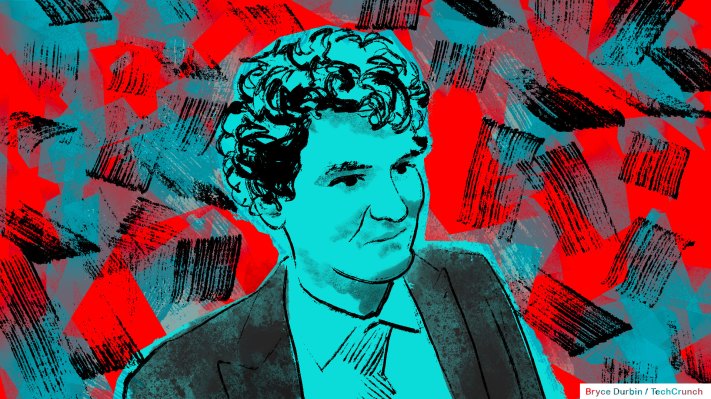As Sam Bankman-Fried’s trial approaches its final innings, the question of how he’ll mount his defense hangs over the proceedings.
On Thursday, prosecutors will finish their case against Bankman-Fried — which includes seven charges related to fraud and money laundering — and the defendant’s team will be given the opportunity to make a case.
During a teleconference on Wednesday, Mark Cohen, Bankman-Fried’s lead attorney, said that the defense has three potential witnesses. He also said, “Our client will be testifying.”
Cohen said he expects Bankman-Fried’s testimony to be the same length as that of his former colleagues, who pleaded guilty: FTX co-founder and CTO Gary Wang, Alameda CEO Caroline Ellison, and FTX head of engineering Nishad Singh. He also said that it will take a “good part of Thursday, maybe all of Thursday,” with potential for Friday cross-examination.
Assistant U.S. attorneys Nicolas Roos said if the defendant testifies, which Cohen indicated he is, and depending on what Bankman-Fried says, a Monday closing for the trial “may no longer be realistic.”
“We’re in the last innings, and, to switch metaphors, this is his Hail Mary,” said Josh Naftalis, a former federal prosecutor who’s now a partner at Pallas Partners. He predicted earlier this week on TechCrunch’s Chain Reaction podcast that Bankman-Fried would testify.
While he was working in the Southern District of New York, Naftalis secured convictions in every federal criminal trial that he led as an assistant U.S. attorney. Based on that experience, Naftalis said that Bankman-Fried is up against strong evidence, three cooperating witnesses and details of how billions of dollars flowed through corporations he controlled. “This is his opportunity to say, ‘I didn’t intend to do anything wrong. I didn’t act in bad faith. I was acting in good faith, things just got out of control,’ and it’s really hard for any defendant to explain to a jury what’s in his head unless they take a stand,” Naftalis said.
Of course, Bankman-Fried testifying comes with risk of more evidence mounting against him. But as we’ve heard during the trial from some of his closest inner circle executives, he allegedly loves to take risks.
Taking the stand comes with its own perils. “Once it goes to cross[-examination], he doesn’t get to say, ‘I’m done,’” Naftalis said. “He can’t just walk out if he doesn’t like how it’s going.”
SBF was like Madoff, but different
Many people have compared the alleged fraud to Bernie Madoff’s Ponzi scheme. The convicted fraudster received a mammoth block of time in prison, but Naftalis doesn’t see Bankman-Fried’s case as one that would get the maximum sentence. Bankman-Fried is facing up to 115 years for the seven charges. He has a separate trial scheduled in March 2024 for political corruption and additional money-laundering charges.
“I think when someone’s young, it’s a lot harder to say, does this person deserve to spend 60 years in jail?” Naftalis said. “That is an unbelievably long time for a white-collar case, which is why I don’t think that this sentence will be anywhere close to that. Now, I think it’s hard for me to predict, but Madoff got basically 100 and something years in jail. I think that was to send a message that this guy is old, he’s likely going to, unfortunately, die in prison, which he did.”
Making sense of strategies
The crypto community, as well as some other news outlets, have voiced opinions — mostly negative — about how Bankman-Fried’s lawyers are defending him. Much of the commentary speculates that the federal judge may be siding with prosecutors. But Naftalis, who spent over a decade in that building and led cases in front of Judge Lewis A. Kaplan, disagrees.
“I think two things that people are getting wrong are related, which is the criticism of the judge and the criticism of the defense,” Naftalis said. He noted that he’s worked with Kaplan on cases in the past and believes that he’s not favoring prosecution as some people have argued, but is instead “calling it straight.”
The fact that prosecutors’ evidence may be perceived as hurting the defense’s case doesn’t mean Kaplan “has his thumb on the scale; it means he’s doing his job,” Naftalis said.
The government’s main witnesses, who took plea deals, are doing a lot to make Bankman-Fried’s case bulletproof.
“It has been key for [prosecutors to have] three witnesses who have told consistent stories that corroborate each other and that line up with the documents,” Naftalis said, referring to Wang, Ellison and Singh, all part of Bankman-Fried’s inner circle.
While each of the three major witnesses had their role in helping the prosecution prove its case, Naftalis said that Ellison had the most impact. The government called her second, after Wang who set the stage, but “she was the main event.”
And Naftalis said that so far, the prosecution is doing a good job. “I don’t think they’re going for an acquittal. I think they’re going for a hung jury,” Naftalis said. “I think the crypto Twitter world doesn’t understand how strong the government’s case is, how good a job the judge is doing and how good a job the defense lawyer is doing.”
This story was inspired by an episode of TechCrunch’s podcast Chain Reaction. Subscribe to Chain Reaction on Apple Podcasts, Spotify or your favorite pod platform to hear more stories and tips from the entrepreneurs building today’s most innovative companies.
Connect with us:
- On X, formerly known as Twitter, here.
- Via email: chainreaction@techcrunch.com
